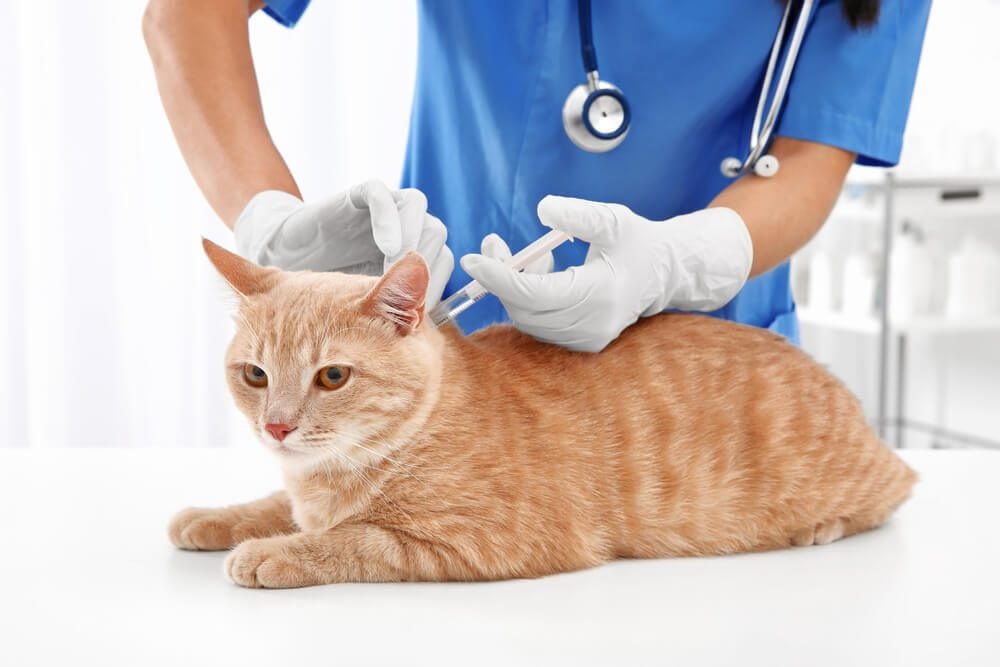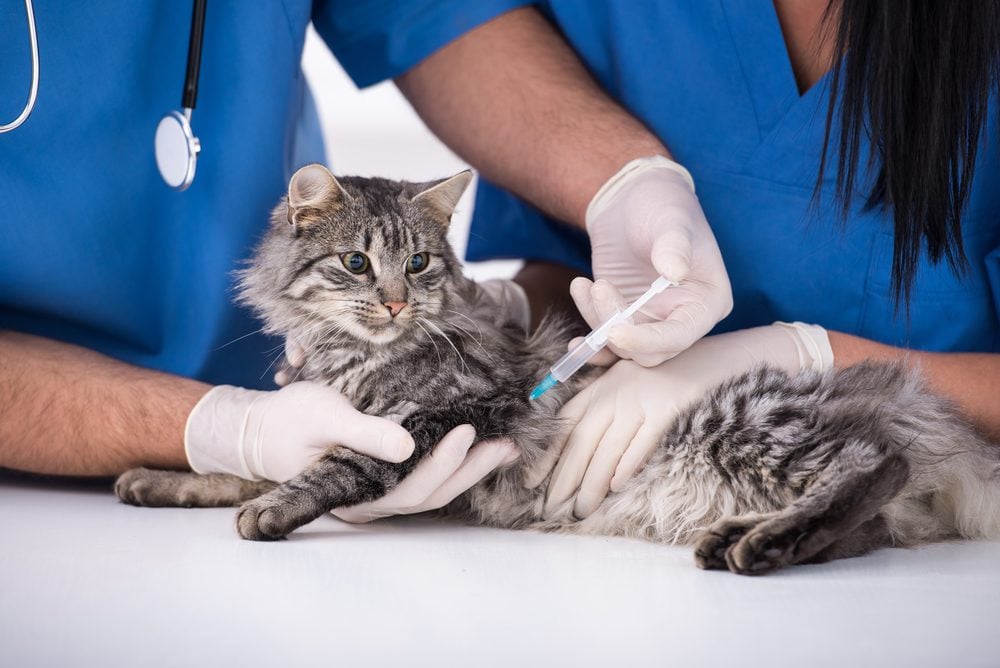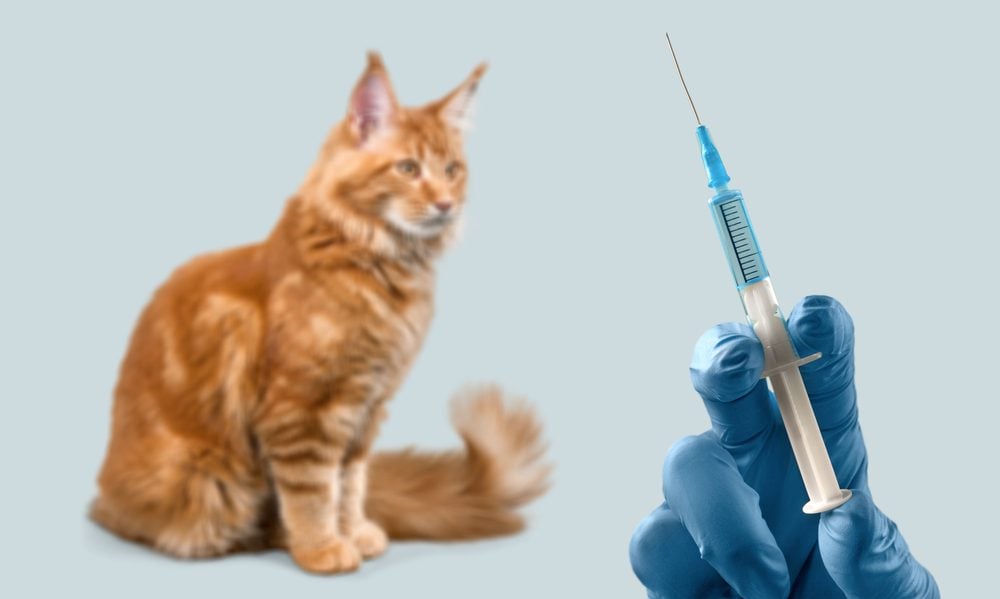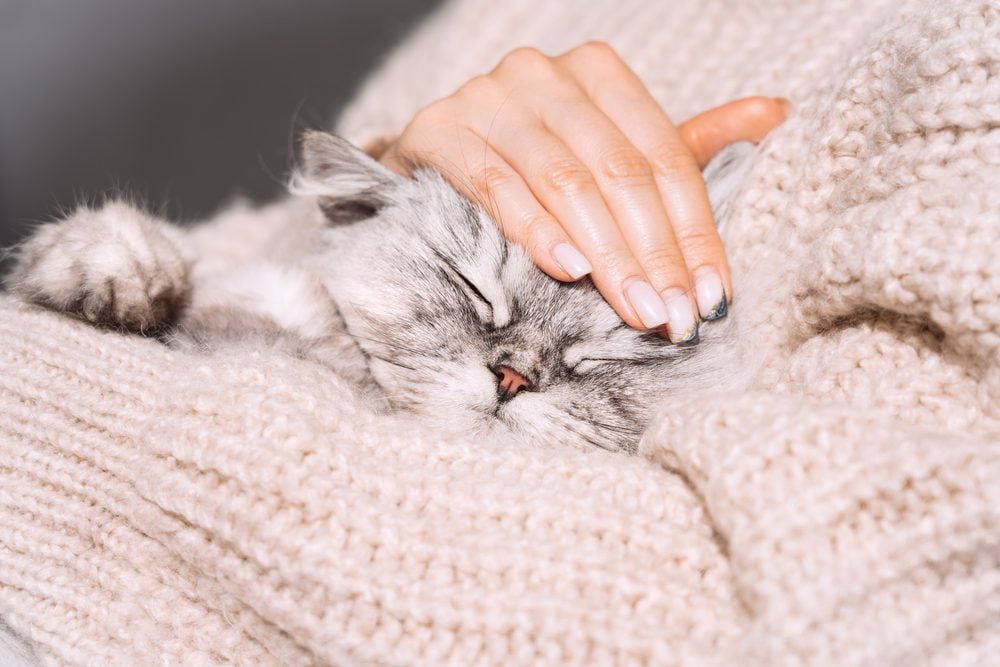Why is My Cat Limping After Vaccination?

Table of Contents
Yes, cat limping after vaccination is a common scenario. In fact, limping is an expected reaction to vaccines. Vaccines are literally life-saving but they do not come without a list of possible complications and side effects.
Vaccination is a three-step process. First, you have to prepare your cat for the vaccination. Then go for the vaccination and finally, provide post-vaccination care to your cat.
There are two essential or core vaccines for cats and these are:
- Rabies
- FVRCP (Feline Rhinotracheitis Virus/Feline Herpesvirus 1 (FVR/FHV-1), Feline Calicivirus (FCV), and Feline Panleukopenia (FPV))
However, you can also vaccinate your cat against other diseases like Feline Leukemia Virus (FVR/FeLV) depending on your cat’s individual situation.
After vaccination, there are two types of limps you can expect to see in your cat.

Vaccination site limps are limps caused by pain or discomfort at the point at which the vaccination is injected. When the skin is broken as it would be after injection, the body responds with an immune response we all know as inflammation.
The role of inflammation is to minimize the chance of infection at the wounded site. The four classic signs are redness, heat (fever), swelling, and pain.
If your cat’s shot is given on the leg or foot, there will be inflammation at the site. Whichever limb has the injection site might become too painful to walk or stand on, hence a limp/lameness.
This type of limp should resolve within a day or a couple of days. If the limping persists without improvement for several days, consult your vet about what to do.
This is the kind of limp caused by the body’s general reaction to the vaccine. After vaccination, the cat’s body reacts as it would if it were under attack by disease.
Therefore vaccinations against diseases that cause limping, particularly the Feline Calicivirus, will cause limping. This is because the body cannot tell apart a real virus from a vaccination virus.
This reaction is perfectly normal and should be nothing to worry about. Vaccines are weakened versions of the real thing so the symptoms should not be as bad.
Vaccination reaction limping syndrome usually affects more than one limb. Sometimes it will affect two limbs at once or one limb at a go in turns. The limp should resolve on its own in a couple of days but if it doesn’t, seek the help of your veterinarian.
Yes, vaccines can cause paralysis in cats. Paralysis is usually a side effect of the rabies vaccination. As we said, the body responds to a vaccine as it would to the real disease. One of the symptoms of rabies is paralysis. Therefore, when a cat gets a rabies vaccine, it can get partially paralyzed.
The occurrence of paralysis in cats after vaccination is very rare. It usually affects only the hind legs and resolves within a matter of days. The mechanism through which rabies causes paralysis is not fully understood but scientists suspect that it may be through damaging nerve cells.
It is extremely important for you to discuss any reactions your cat has to the rabies vaccine with your vet. This is because some regions require that cats get a rabies booster shot every three years.

Vaccines contain weakened disease-causing pathogens which is why they temporarily have adverse effects on your cat. The goal of a vaccine is to introduce your body to a disease in a weaker version to prepare it for an event when the real disease attacks.
The vaccine achieves this by giving your body a chance to make antibodies against whichever disease you are vaccinating against. When a vaccine is introduced to a cat, the body reacts as it would if it were a real infection. This results in unpleasant side effects like pain, fatigue, and fever.
Other than limps, other reactions to vaccines in cats are listed below:
- Fever
- Lethargy
- Vomiting
- Diarrhea
- Loss of appetite
- Sneezing
- Nasal discharge
- Difficulty breathing
Cat limping after vaccination is common but not very severe. Some vaccination reactions are much more complicated and require aggressive management. Here are the three severe vaccination reactions to watch out for:
Anaphylactic shock. Anaphylactic shock occurs when your cat has a severe allergic reaction to the vaccine resulting in symptoms like seizures, trouble breathing, and facial swelling. This can happen right after vaccination in which case a vet will administer an antihistamine and any other necessary medications.
Organ damage. Organ damage may take weeks or even years to become apparent to you. Stay attentive and watch out for any change in behavior in your cat after vaccination. Also, stay up-to-date on your cat’s regular veterinary appointments and annual check-ups.
Tumor or Feline injection Site Sarcoma. A tumor known as fibrosarcoma may develop at the site of vaccination in some cats. This is unfortunately a serious side effect as the tumor can be fatal. Treatments like surgical removal or chemotherapy may help but the tumor can reoccur.

Post-vaccination care usually involves maximizing comfort for your cat and addressing any symptoms. Make your pet’s life as comfortable as possible by giving her favorite snacks, providing a comfortable place to sleep or sit in, and allowing as much rest as possible.
Pain relief medication or alternative pain remedies like CBD can also help with post-vaccine discomfort. We recommend Honest Paws CBD oil for cats, which is made with hemp-derived CBD and can help with your cat’s limp after vaccination.
In conclusion, cat limping after vaccination is normal. It is also expected for cats to feel unwell after vaccination. Your cat may have a mild reaction or get seriously affected by the vaccine.
Common vaccination reactions include lethargy, limping, fatigue, loss of appetite, and low-grade fever. It is also normal for a cat to show clinical signs of the disease against which she was vaccinated.

















